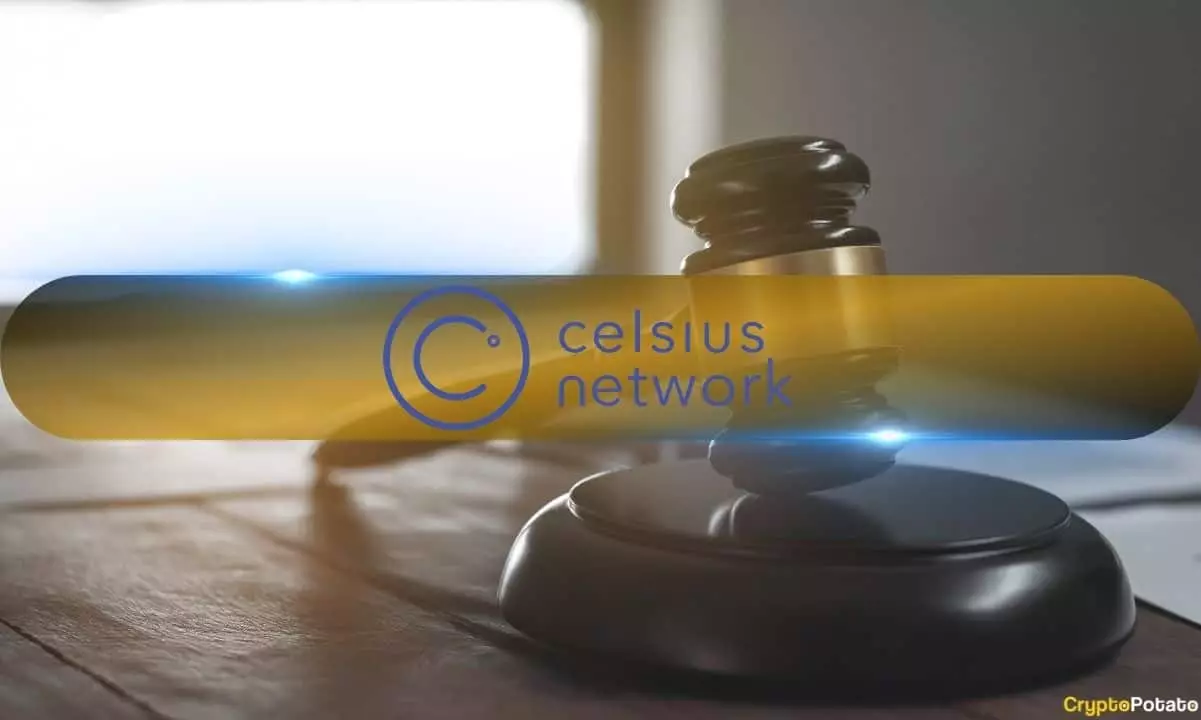Celsius Network, a cryptocurrency platform that once attracted considerable attention for its ambitious financial products, is now grappling with significant insolvency challenges. The company has found itself ensnared in complex legal battles aimed at recouping funds linked to what it describes as fraudulent transfers to undisclosed digital wallets. These proceedings hint at broader concerns regarding transparency and accountability within the ever-evolving cryptocurrency landscape, where anonymity often complicates legal recourse.
The case exemplifies the difficulties associated with the rapid growth of digital currencies—specifically, the shortcomings of traditional legal processes when applied to the cryptocurrency sector. As the company seeks to recover these allegedly misappropriated assets, it faces inherent obstacles, particularly in identifying the individuals behind the anonymous wallets involved in the suspect transactions.
With the cryptocurrency ecosystem centered around anonymity and decentralization, Celsius’s efforts to track down the responsible parties have proven to be fraught with challenges. Conventional methods of legal service, such as mailing notices to physical addresses, have been rendered ineffective in this digital context. This inefficiency highlights a crucial gap within legal frameworks that have yet to fully accommodate the unique attributes of digital currencies and blockchain technology.
Celsius’s legal team has pursued various strategies in their quest for accountability, including lawsuits aimed at voiding the controversial transactions. However, their inability to pinpoint the identities of the wallet holders has made it increasingly clear that traditional approaches were inadequate for this case. This realization prompted the company to innovate and propose a modern solution to the courts: utilizing non-fungible tokens (NFTs) as a means of serving legal notices.
The court’s subsequent approval of Celsius Network’s proposal to airdrop NFTs as a method of service marks a notable shift in how legal communications might evolve in the digital era. The judge’s decision underscores the necessity for legal systems to adapt to the realities of cyberspace, where conventional strategies often falter. Each NFT dispatched will contain a hyperlink that directs the recipient to a webpage hosting vital legal documents, such as the complaint and associated filings. This avant-garde approach not only serves its intended legal function but also highlights the unique possibilities presented by digital assets in addressing complex legal scenarios.
To enhance the efficacy of this strategy, Celsius has collaborated with FTI Consulting—a firm experienced in digital asset tracing and security. Their role is crucial; they ensure that the NFTs are successfully received by the targeted wallets and that the recipients access the legal information directly. FTI’s involvement adds another layer of credibility and oversight to the process, as they track interactions with the NFTs to confirm that real individuals, rather than bot mechanisms, are engaging with the notices.
The ruling also sets a significant precedent that might influence future legal disputes within the cryptocurrency sector and beyond. Under New York law, the court deemed that alternative methods of service are justified when conventional means prove ineffective. The judge reiterated that serving notices via NFTs fulfills constitutional due process standards, ensuring that defendants are reasonably informed of the actions taken against them.
Judge Martin Glenn’s endorsement of Celsius’s NFT strategy is reminiscent of the groundbreaking days when email began to legitimize communication in legal procedures. The comparison illuminates the evolving nature of law as it adapts to technological advancements, boldly venturing into uncharted territories. By embracing this innovative method, the court not only validated the significance of blockchain technology in contemporary legal discourse but also acknowledged the pressing need for adaptable mechanisms within changing frameworks.
Celsius Network’s pioneering use of NFTs to serve legal notices foreshadows a future where blockchain solutions could become commonplace in legal proceedings, particularly within the realms of cryptocurrency and digital finance. As this legal approach gains traction, it could inspire other companies facing similar challenges to seek innovative methods for notification and accountability.
In sum, Celsius Network’s situation serves as a crucial indicator that the legal system must evolve alongside technological advancements. The successful application of NFTs not only addresses immediate concerns for Celsius but may also lay foundational ground for improving transparency and recourse in the broader cryptocurrency space. The outcome of this case could indeed herald a new era of legal practices within the digital age, affirming that innovation and tradition can coexist, even in the least expected sectors.


Leave a Reply